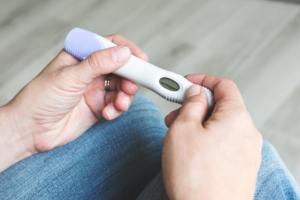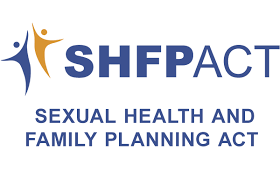I think I’m pregnant

So you think you might be pregnant?
You might be worried that you have had unprotected sex, might have missed a period, your period might be late, or perhaps your last period was much shorter and lighter than usual and just didn’t seem normal. Or maybe you just don’t feel well and are worried that you might be pregnant.
If you have only just had unprotected sex and are worried that you might become pregnant you can use emergency contraception up to 5 days after the sex you are worried about. The sooner oral emergency contraception is taken the more effective it is. Oral emergency contraception is available over the counter in pharmacies in Australia. For more information about this see our section on Emergency Contraception.
If you have been planning a pregnancy and you are hoping that you are pregnant see Having a baby in Canberra.
If you do not want to be pregnant or are feeling uncertain about what to do, then after reading this go to our Unplanned Pregnancy section.
What are the symptoms of pregnancy?
The symptoms of pregnancy vary for individual women. The most common symptom that occurs is no period, or your period being unusually short and light.
Other symptoms include:
- Swollen and tender breasts
- Nipple sensitivity
- Tiredness
- Urinating more often
- Nausea
- Vomiting
- Food aversions (finding the taste and smell of some foods very unpleasant)
- Food cravings
- Mild pelvic cramping like period cramps.
- Feeling more emotional or moody
Some women will get just a few symptoms, some will get many or all of these symptoms, and some will get none.
What to do first?
Have a pregnancy test.
If you think you are pregnant you should do a pregnancy test, if you have not done one already. This is important so that you can get the right care if you are continuing the pregnancy, access timely abortion if you are not continuing, and give yourself time to make a decision if you are unsure.
You can do a home pregnancy test or you can go to your doctor or a family planning clinic. If you are in the ACT you can go to The Junction Youth Health Service if you are under 25, or to one of the Walk in Centres at Tuggeranong, Gungahlin and Belconnen to have a urine pregnancy test.
How do pregnancy tests work?
Urine pregnancy tests work by detecting a hormone that is produced in pregnancy called Human Chorionic Gonadotrophin (HCG).
Where can I get a home pregnancy test and are they accurate?
Home pregnancy tests are readily available in pharmacies and supermarkets and are around 97% accurate if they are used correctly and to the manufacturer’s instructions. Make sure that the test is in date, that you use it exactly as the instructions say, and make sure that you use a clean container if collecting urine (although many home kits require that you pee directly onto a stick). The best time to do a home urine pregnancy test is with the first urine sample in the morning.
How soon should I do a urine pregnancy test?
You should do a urine pregnancy test after you have missed a period. Don’t do it too soon or it may be inaccurate. The earliest that urine pregnancy tests are reliably accurate is around 1 week after your missed period was due to start. If your periods are irregular and you are not sure when your next one may be due then about 16 days after the unprotected sex is the earliest you may get an accurate result. Before that there may not be enough hormone in your urine for the test to pick up and the test may be a ‘false negative’ meaning that you are actually pregnant but it’s not showing up in the test.
What if the home pregnancy test is positive?
If the home pregnancy test is positive you should confirm the pregnancy. To do this you will need to make an appointment to see your GP or to see a doctor at a family planning clinic. This will allow you to do any further tests needed, obtain further information, advice, assistance, or referral as needed. The doctor might suggest that you have a blood pregnancy test which is more accurate and can also give you an idea of how far pregnant you might be.
What about having an ultrasound?
If you don’t know how pregnant you might be (for example you can’t remember when your last period was) the doctor might also suggest an early ultrasound as a useful way of finding out how pregnant you are. An ultrasound is a test that uses sound waves to give a picture of part of the body and is considered quite safe in pregnancy. Ultrasounds are done at special medical centres by ultra-sonographers. An ultrasound for early pregnancy will involve a probe being moved around your lower belly, and often also involves a probe being put into the vagina which can give a better picture. If you know that you do not want to continue the pregnancy and will be having an abortion you do not need an ultrasound unless you have no idea how far pregnant you might be. The abortion clinic will do an ultrasound on the day at no extra cost.
If your doctor refers you for an ultrasound and you are unsure if you are going to continue the pregnancy, you need to let the doctor and the ultra-sonographer know this so that they do the test appropriately and sensitively.
What if the urine pregnancy test is negative?
If the test is negative, and your period still has not come, wait another week then do another test. If it is still negative, then you might want to visit your GP. They can do a blood pregnancy test which is more accurate.
If the test is negative or your period comes, and you don’t want to get pregnant, you might want to see your GP or a family planning clinic doctor to discuss ongoing contraception, or to review any current contraception that you are using. There are many methods of contraception available, including the highly effective Long Acting Reversible Contraceptive methods that can mean that you can take control of if and when you want to have children. For more information on contraception see our section on Contraception.
How is pregnancy calculated?
A pregnancy is calculated from the first day of your last normal menstrual period. It’s good to try and remember this, or work it out if you can, because no matter what you decide to do about the pregnancy how far pregnant you are will matter and people caring for you will ask you when the first day of your normal period was.
Pregnancy is counted in weeks and days rather than months and the length is referred to as ‘gestation’. For example: 8 weeks and 4 days gestation.
Pregnancy is divided into 3 trimesters:
- The first trimester is from the beginning to 12 weeks.
- The second trimester is from 13 weeks to 28 weeks.
- The third trimester is from 29 weeks to 40 weeks.
What should I do next?
Once you have confirmed a pregnancy you need to take the next step.
If you know that you are continuing the pregnancy:
Make an appointment with your GP. If you don’t have a GP then you will need to find one (ask around among friends and family for recommendations).
For more information see Having a baby in Canberra.
If you know that you want to have an abortion:
See our section on Unplanned Pregnancy or contact one of the two clinics in the ACT region who provide abortion:
- Marie Stopes Australia (based in Canberra city) Phone: 1300 863 546.
- Gynaecology Centres Australia (based in Queanbeyan) Phone: 02 9575 9599.
If you are unsure what you are going to do:
See our section on Unplanned Pregnancy for more information about what to do and about making a decision.
Get support.
No matter what you think you might do, thinking that you might be pregnant or finding out that you are pregnant can be a time that is filled with many different feelings and can be confusing, frightening, and stressful. If the pregnancy is not planned or not wanted this is especially the case. Regardless of your situation it is very important to find someone that you can talk to. This may be a close friend, a family member, partner, or even a colleague who you are close to. It is important that this is someone you trust will support you and will keep your confidence if that is what you need.
Unplanned pregnancy counselling.
You can also make an appointment with Sexual Health & Family Planning ACT’s Unplanned Pregnancy Counselling Service. This is a free, confidential, non-judgmental, unbiased, supportive service which is provided by experienced sexual & reproductive health nurse-counsellors and refers for all options. If you have an unplanned pregnancy you can access this service for accurate information, just to talk things through, to clarify a decision, for support, and for counselling.









